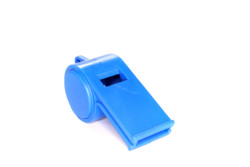Top Class Actions’s website and social media posts use affiliate links. If you make a purchase using such links, we may receive a commission, but it will not result in any additional charges to you. Please review our Affiliate Link Disclosure for more information.

The whistleblower lawsuit alleges that Ocwen gave false information to a loan program from the federal government, which then allegedly won its executives billions in incentive payments.
The CFPB told U.S. District Judge Amos Mazzant that its effectiveness as an organization depends on its ability to protect these confidential records, and that its status could be compromised if the information in these records were to be made public in the whistleblower lawsuit.
“As the courts have long recognized, effective supervision of financial institutions depends upon the mutual assurance that communications between the examiners and the officials of the examined entities will remain confidential under the protection of the Federal bank examination privilege,” CFPB’s official motion read
The whistleblower lawsuit was filed by Michael F. and Brian B. in 2014, and alleged that Ocwen lied about their compliance with the Home Affordable Modification Program guidelines.
These guidelines are designed to lower the interest rates and payments of clients, as well as provide major assistance by extending terms and forgiving principal in order to help their homeowners avoid foreclosure.
The plaintiffs further claim in the whistleblower lawsuit that Ocwen lied to the federal government, submitting false certifications as well as other false information over one of their programs.
The program, Ocwen says, led to their homeowners losing their property and allowed their executives to receive nearly $2 billion in incentive payments, not from Ocwen, but from the federal government.
An attorney for the plaintiffs say that regarding the protection of CFPB records, it is believed that the court will be able to properly determine whether or not the records in question should be protected moving forward with the whistleblower lawsuit.
On the CFPB’s motion to protect this information, plaintiffs’ attorneys said, “Every agency wants to protect its turf — this is not unusual.”
File a Whistleblower Lawsuit
The federal government relies on the help of whistleblowers in companies across the country to report and expose deception, from lying in reports to healthcare or financial fraud.
Taking on the role of a whistleblower can be intimidating for employees, fearing that they could be punished at work or even fired. However, the government has put laws in place to ensure that whistleblowers are protected from such discriminatory actions.
Because of the important role of a whistleblower in exposing fraud against the government, the whistleblower is usually awarded a substantial chunk of the whistleblower lawsuit settlement money. This is often between 15 and 30 percent.
If you believe that your current or former employer is acting fraudulently against the federal government, you may be able to call attention to this problem by filing a whistleblower lawsuit on behalf of the federal government.
The Ocwen Whistleblower Lawsuit is the United States of America et al v. Ocwen Loan Servicing LLC et al., Case No. 4:12-cv-00543, in the U.S. District Court for the Eastern District of Texas.
In general, whistleblower and qui tam lawsuits are filed individually by each plaintiff and are not class actions. Whistleblowers can only join this investigation if they are reporting fraud against the government, meaning that the government must be the victim, and that the alleged fraud should be a substantial loss of money.
Do YOU have a legal claim? Fill out the form on this page now for a free, immediate, and confidential case evaluation. The attorneys who work with Top Class Actions will contact you if you qualify to let you know if an individual qui tam lawsuit or whistleblower class action lawsuit is best for you. Hurry — statutes of limitations may apply.
ATTORNEY ADVERTISING
Top Class Actions is a Proud Member of the American Bar Association
LEGAL INFORMATION IS NOT LEGAL ADVICE
Top Class Actions Legal Statement
©2008 – 2024 Top Class Actions® LLC
Various Trademarks held by their respective owners
This website is not intended for viewing or usage by European Union citizens.
Get Help – It’s Free
Join a Free Whistleblower, Qui Tam Lawsuit Investigation
If you believe that you have witnessed fraud committed against the government, you may have a legal claim. Whistleblowers can only join this investigation if they are reporting fraud against the government, meaning that the government must be the victim, and that the alleged fraud should be a substantial loss of money.
See if you qualify to pursue compensation and join a whistleblower lawsuit investigation by submitting your information for a free case evaluation.
An attorney will contact you if you qualify to discuss the details of your potential case.
Please Note: If you want to participate in this investigation, it is imperative that you reply to the law firm if they call or email you. Failing to do so may result in you not getting signed up as a client, if you qualify, or getting you dropped as a client.
Oops! We could not locate your form.












